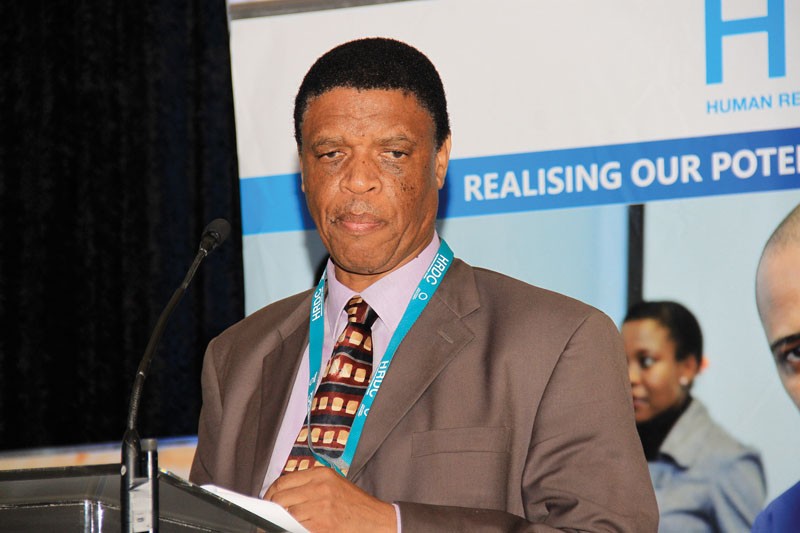Bots Adopts Credit -Based System
Correspondent | Monday June 27, 2016 15:23


Discussing the immediate benefits of the new BQA regulations, Molwane said institutions, also known as education and training providers, will have to make adjustments to their existing learning programmes and ensure that the programmes are aligned to the National Credit and Qualifications Framework System (NCQF).
“For instance, learning programmes will have to be: * Outcome-based (learning outcomes approach): This is the new system that emphasises the importance of showing what the learner knows and is able to demonstrate after a learning process.
Credit-based: Instead of emphasising the duration of a learning programme, education providers will be expected to emphasise the volume of work covered in terms of credits. According to the new NCQF system, one credit is equivalent to 10 notional hours of learning. The notional time refers to contact time and time spent on assignments and other learning tasks taking place outside the classroom”.
“Since our education system is going to be outcome-based it is fundamental to understand that in addition to a learner’s overall performance, the learner will have to demonstrate the knowledge and skills they have acquired after a learning process. Each level of learning on the NCQF system is described by a set of level descriptors which spell out what knowledge, skills and competencies are expected of a learner at that level,” he added.
“In addition to the above, education and training providers will be expected to align their programmes to the sector plans that the Human Resource Development Council (HRDC) will develop. The HRDC, in collaboration with industry, is developing sector specific plans that are informed by the needs of industry. When complete, the sector plans will be transferred over to the BQA where they will be translated into learning programmes and ultimately qualifications as required by industry.
However, the translation of the sector plans will be done in collaboration with education and training providers. “The new regulation also sees the mandate of the BQA expanded to include the quality assurance of general education (pre-primary, primary and secondary education) and Higher Education,” observed Molwane. He added, “in the past, the Botswana Training Authority was the only quality assured Technical and Vocational Education and Training (TVET) sub-system. This is major shift in function.
The criteria for the design and development of qualifications will be developed by the BQA. And all quality-assured qualifications will be registered by BQA. In short, BQA will be the custodian of all qualifications in Botswana”.
Molwane added that education and training providers will have to develop several operational and institutional polices informed by the criteria set by the BQA. For instance, some of the policies will include Protection of Enrolled Learners. This policy will ensure that enrolled learners are not disadvantaged by any factors that may interfere with their learning. He noted that in the past, the then Botswana Training Authority employed a cost-sharing approach for the services it provided to education and training providers. This approach proved not to be sustainable as the Authority was forced to heavily subsidise providers. The recent economic crunch caused the Botswana Government to reduce annual subventions to the Authority. This forced the Authority to introduce cost-recovery measures. A schedule of fees has been introduced and all providers are expected to pay for the services that BQA will provide, Molwane explained.
On the long term implications of the new regulations on the future of education in Botswana, Molwane said the introduction of the NCQF is a paradigm shift, a move away from the traditional system of education and training. “Under the NCQF system, every component of learning is recognised and learners are expected to build on the components until they have acquired all the necessary credits either for a part or full qualification. The accumulation of credits and recognition of every unit of learning covered encourages learners to keep on learning. Hence Botswana’s NCQF system is a life-long learning type”.
“The future education and training is going to be demand-driven. The approach is meant to tackle the current escalating problem of mismatch between education, training and industry demand,” Molwane enthused.
According to the BQA official, the Botswana NCQF is based on international best practices, adding that the level descriptors that will be used to determine the levels of qualifications have been benchmarked internationally and regionally to ensure that learning programmes developed by education and training providers meet international standards. According to Molwane the results of this shall see local qualifications comparable and equivalent to other qualifications in the SADC region and beyond.
Molwane though, noted that it is very important to ascertain that the regulations are internalised and understood so that they are implemented successfully.
“It is also crucial to understand that BQA is building a common quality assurance platform to ensure that all education and training providers use the same criteria to develop their institutional systems and processes. The understanding of the regulations will go a long way to ensuing that all providers are compliant. It is in this light that the BQA will sensitise and capacitate all key stakeholders, including BQA staff so that the implementation of the Regulations is successful,” Molwane concluded.
